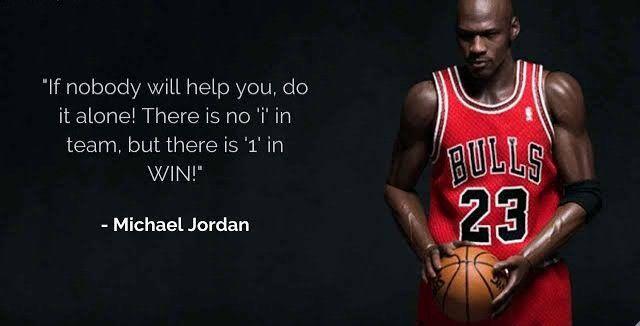
Motivation is the heartbeat of every successful basketball team. No matter how talented a player is, maintaining consistent effort and enthusiasm through weekly practices can be a challenge—especially when the season is long, physically demanding, and mentally taxing. Coaches and team leaders play a crucial role in creating an environment that keeps players driven, engaged, and eager to improve. Here are five effective ways to encourage basketball players to stay motivated and give their best effort in every training session.
1. Set Clear, Achievable, and Inspiring Goals
One of the strongest motivators for any athlete is having a clear sense of purpose. When players understand why they’re training and what they’re working toward, every drill gains meaning. Coaches should establish both team goals and individual goals that are specific, measurable, and challenging yet achievable.
For example, a team goal might be to improve defensive rebounding by 15% over the next four weeks, while an individual goal could be for a player to make 80% of their free throws during practice. These goals should be revisited regularly, celebrated when achieved, and adjusted when needed to maintain forward momentum.
It’s also important to connect short-term objectives to the bigger picture. Remind players how each week’s effort contributes to the ultimate vision—whether that’s winning a championship, developing teamwork, or preparing for college-level play. When players can see tangible progress, they stay motivated to push harder.
2. Create a Positive and Supportive Training Environment
Basketball is as much a mental game as it is a physical one. A positive training atmosphere helps players feel comfortable taking risks, making mistakes, and pushing their limits without fear of judgment. Coaches can foster this kind of environment by emphasizing effort over perfection, team unity, and mutual respect.
Start each session with a quick motivational talk or team-building activity to set the tone. During drills, provide constructive feedback—acknowledge what a player is doing right before correcting what needs improvement. Celebrate small wins, such as a great defensive play or improved communication on the court.
Team leaders and captains also play an essential role here. Encourage them to lead by example, show enthusiasm, and support teammates who may be struggling. When players feel valued and respected, they are far more likely to stay engaged and give their best effort consistently.
3. Keep Practices Dynamic and Challenging
Repetition is vital in basketball training, but routine can easily turn into monotony if practices lack variety. To keep players mentally stimulated and excited to train, coaches should design sessions that are dynamic, competitive, and purposeful.
Incorporate different types of drills that work on various skills—ball handling, defense, shooting accuracy, and game strategy—while keeping the intensity high. Introduce small-sided games, timed challenges, or team competitions that simulate real-game scenarios. For example, a “last-minute comeback” scrimmage where players have to close a five-point gap in two minutes can be both fun and pressure-filled.
Additionally, rotate training focuses each week so players are constantly developing new aspects of their game. Not only does this prevent boredom, but it also gives players a sense of progression, which is a key driver of motivation.
4. Provide Individualized Feedback and Recognition
Every player is motivated differently. Some respond best to public praise, while others prefer quiet one-on-one encouragement. Taking time to understand each player’s personality and motivational triggers can make a huge difference.
Regularly provide specific feedback that highlights improvement areas and acknowledges hard work. Instead of vague comments like “good job,” say, “Your footwork on defense has really improved this week—you’re staying lower and reacting quicker.” This kind of targeted feedback helps players see their growth and reinforces that their effort is paying off.
Recognition doesn’t always have to be formal; a quick shoutout during practice, a mention in a team meeting, or even a note of appreciation can go a long way. Players who feel seen and valued are more likely to stay committed and continue striving for excellence.
5. Connect Training to Real-Life Lessons and Enjoyment
Ultimately, players stay motivated when they find meaning and joy in what they do. Coaches who help players see how basketball connects to life beyond the court can inspire deeper commitment. Emphasize lessons like teamwork, discipline, perseverance, and communication—skills that benefit players in school, relationships, and future careers.
At the same time, make sure that fun remains a part of training. Introduce light-hearted competitions, creative warm-ups, or “player-led” drills where team members design and run a portion of practice. Allowing players to take ownership of the process builds confidence and intrinsic motivation.
When players look forward to training—not just because they have to be there, but because they want to be there—their performance naturally improves.

Conclusion
Motivation isn’t something that can be forced—it must be nurtured through consistent support, meaningful challenges, and a positive team culture. By setting clear goals, maintaining an encouraging environment, keeping practices fresh, providing personal feedback, and ensuring players find both purpose and enjoyment in training, coaches can help athletes stay driven week after week.
Basketball training is not just about perfecting skills or winning games—it’s about fostering a mindset of continuous growth and passion for the sport. When players are motivated to give their best every session, the results go far beyond the scoreboard—they become better athletes, teammates, and individuals.




